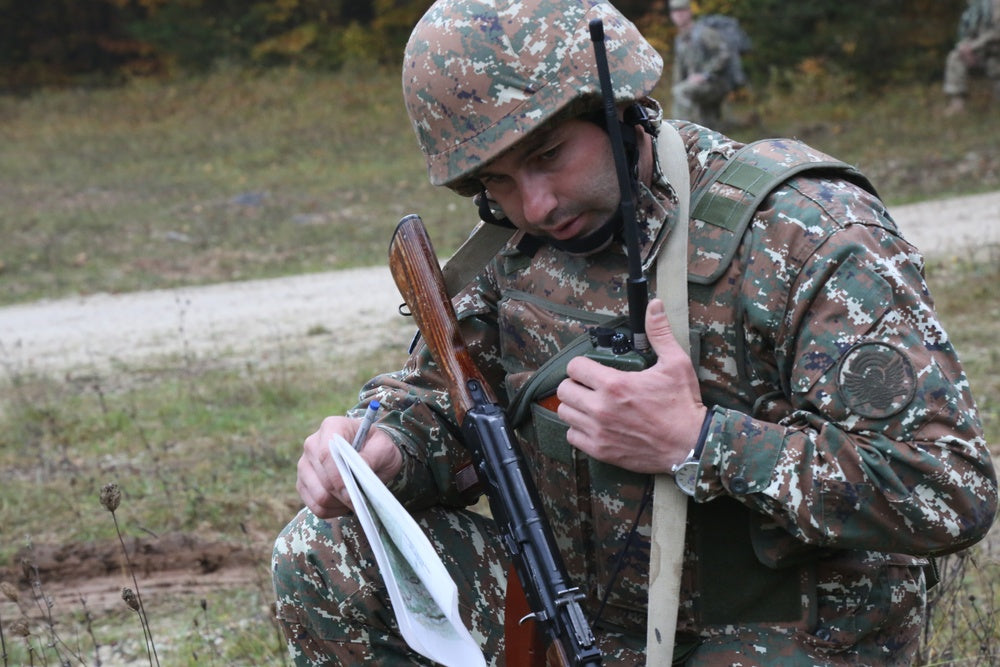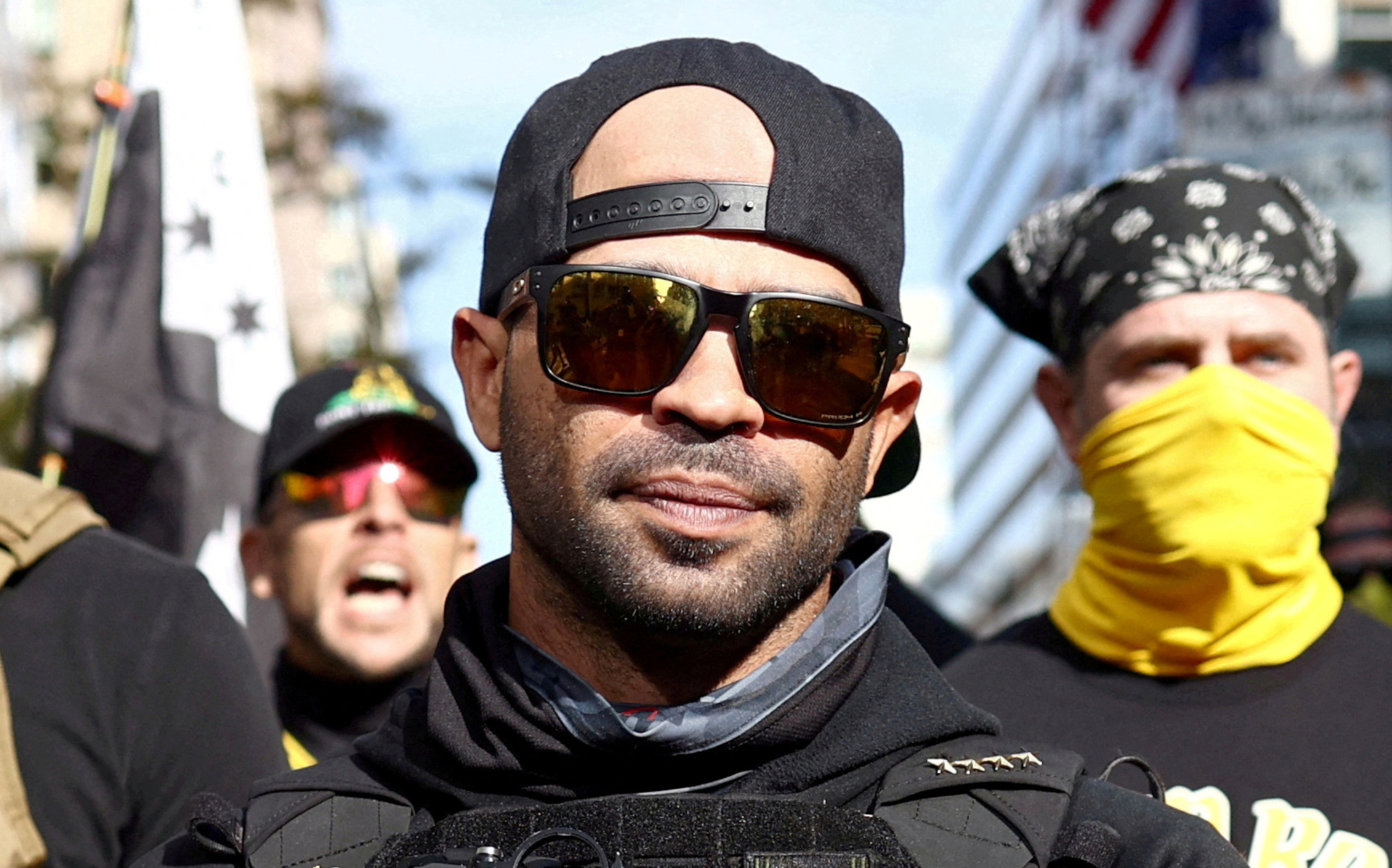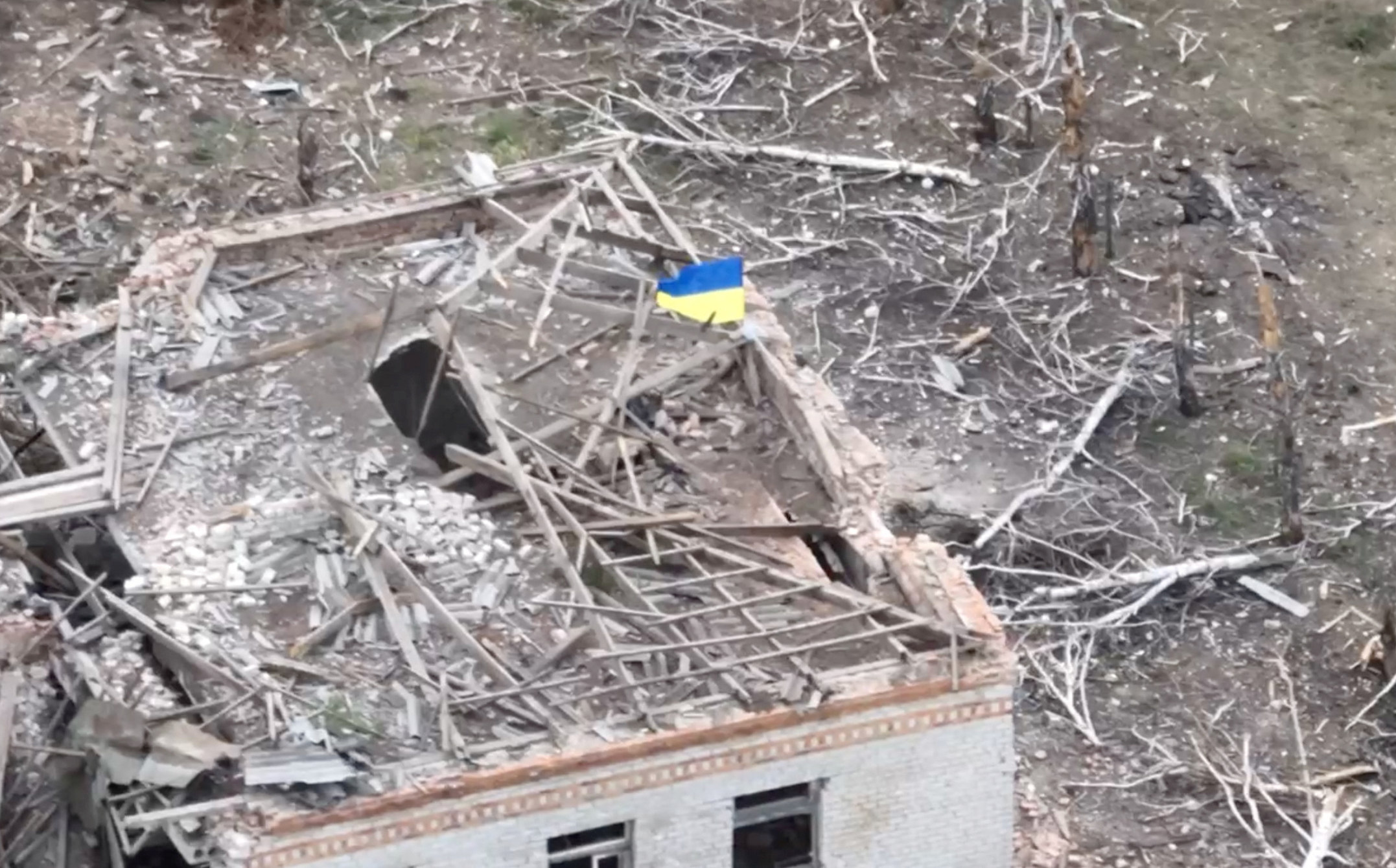
Armenia to train with US troops next week, Russia voices concern
PHOTO CAPTION: Representational photo — An Armenian soldier of the Armenian Peace Keeping Brigade transmits a mission update during a Kosovo Force (KFOR) mission rehearsal exercise at the Joint Multinational Readiness Center in Hohenfels, Germany, Oct. 29, 2016. (U.S. Army photo by Pfc. Malik Gibson via U.S. Defense Visual Information Distribution Service)
(Reuters) -Armenia said on Wednesday it would host a joint military exercise with the United States next week, a development that Russia said was cause for concern.
The Armenian Defence Ministry said the purpose of the Sept. 11-20 "Eagle Partner 2023" exercise was to prepare its forces to take part in international peacekeeping missions.
A U.S. military spokesperson said 85 US soldiers and 175 Armenians would take part. He said the Americans - including members of the Kansas National Guard which has a 20-year-old training partnership with Armenia - would be armed with rifles and would not be using heavy weaponry.
Despite the small scale of the exercise, the Kremlin said it would be watching closely.
"Of course, such news causes concern, especially in the current situation. Therefore, we will deeply analyse this news and monitor the situation," Kremlin spokesman Dmitry Peskov said.
Russia has a military base in Armenia and sees itself as the pre-eminent power in the South Caucasus region, which until 1991 was part of the Soviet Union.
It maintains a peacekeeping force in the region to uphold an agreement that ended a war between Armenia and Azerbaijan in 2020, the second they have fought since the Soviet collapse.
Armenian Prime Minister Nikol Pashinyan said in a weekend interview with an Italian newspaper that Russia had failed to protect Armenia against what he called continuing aggression from Azerbaijan. He suggested that Russia's war in Ukraine meant it was unable to meet all Armenia's security needs.
Peskov told reporters on Tuesday he disagreed with Pashinyan's remarks.
"Russia is an absolutely integral part of this region," he said. "Russia plays a consistent, very important role in stabilising the situation in this region ... and we will continue to play this role."
(Reporting by Mark TrevelyanEditing by Andrew Osborn and Alexandra Hudson)









